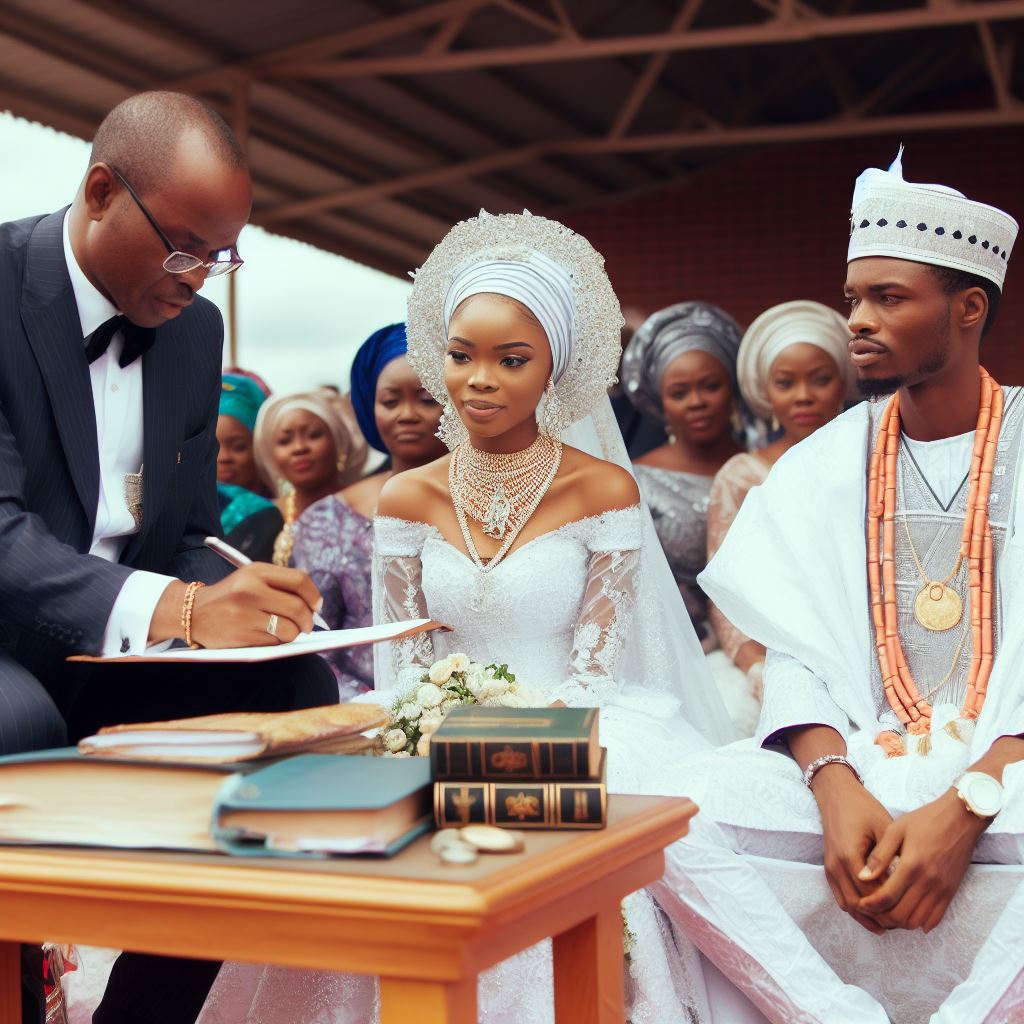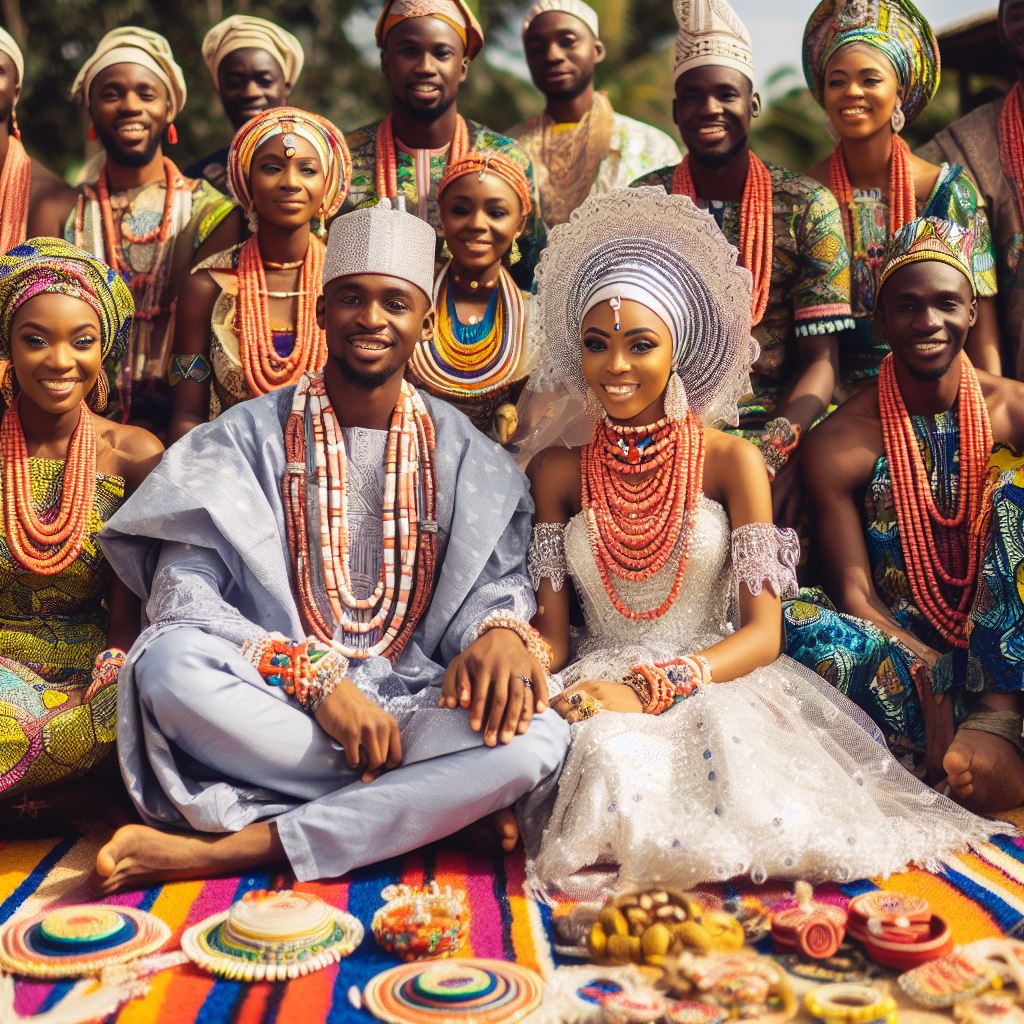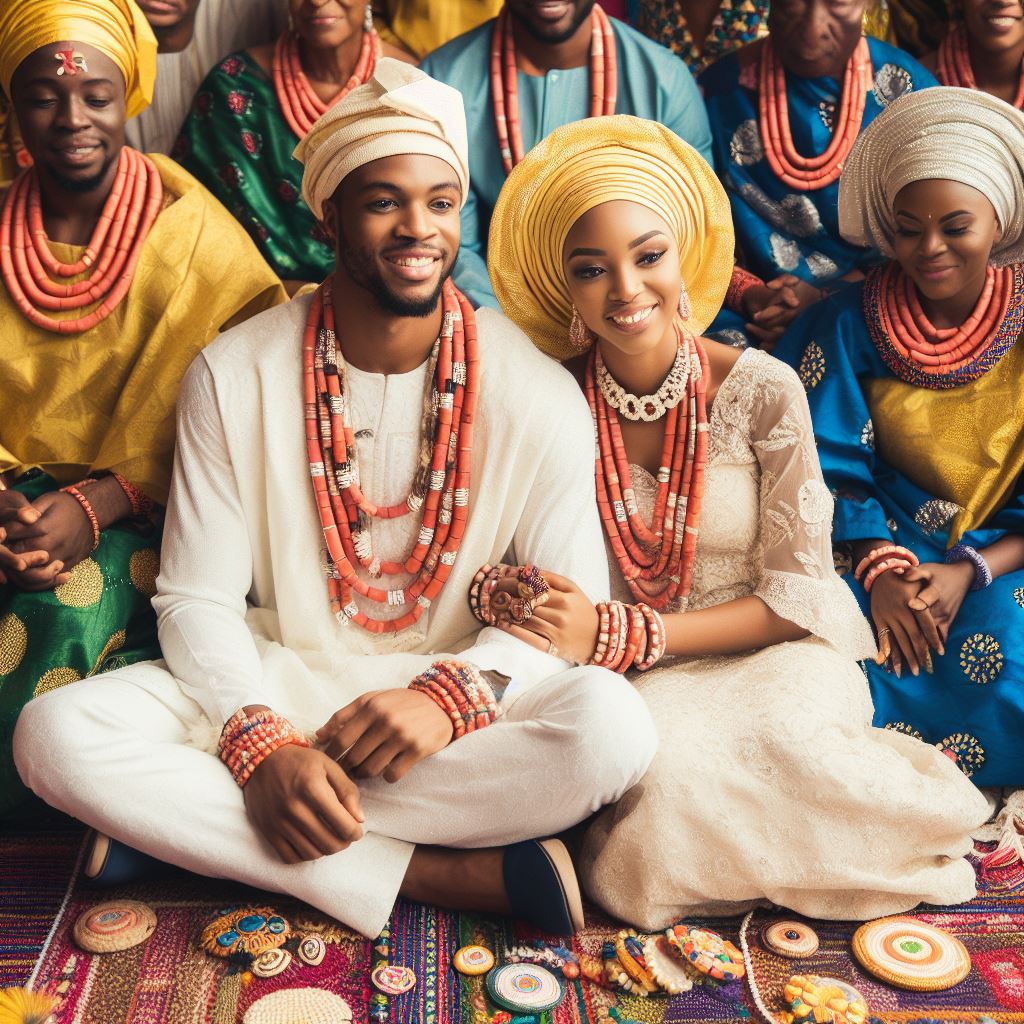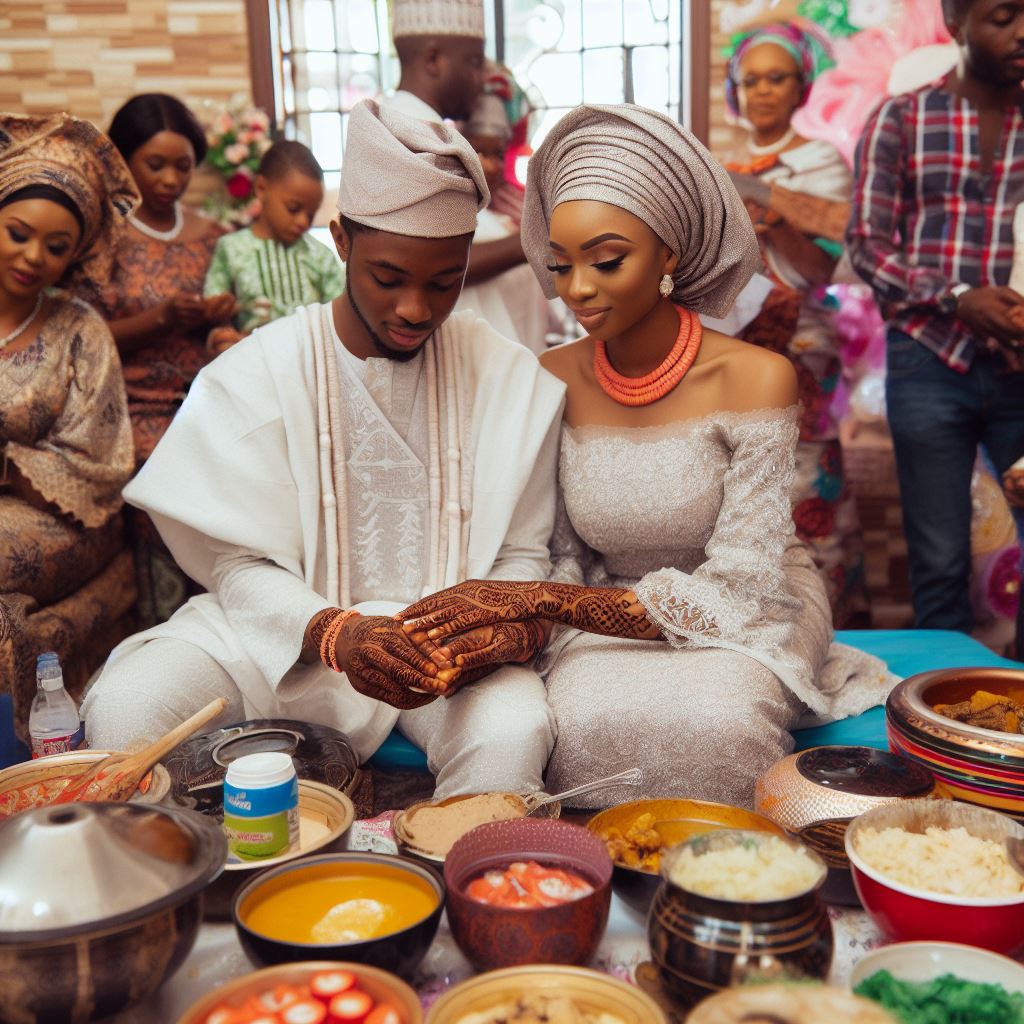Introduction
Nigeria’s Legal Age Consent Marriage Laws are regulated by both statutory and customary frameworks.
Legal age and consent are essential elements when entering into a marriage contract.
By discussing the legal age and consent requirements, individuals can make informed decisions.
Marriage in Nigeria is only valid if both parties involved have reached the legal age of consent.
For civil marriages, the legal age is 18 years old, while customary marriages vary across regions.
Understanding these laws helps address issues such as child marriages and forced unions.
Child marriages often result in devastating consequences, including health risks and limited educational opportunities.
By knowing the legal age and consent requirements, individuals can protect themselves and their loved ones.
Raising awareness about these laws is crucial to promote responsible and consensual marriages in Nigeria.
Basically, understanding Nigeria’s marriage laws is vital for safeguarding individuals’ rights and promoting healthy relationships.
By focusing on legal age and consent, we can combat child marriages and ensure informed decision-making.
This blog post aims to provide clarity and encourage discussions about the importance of navigating Nigeria’s marriage laws.
Legal Age for marriage in Nigeria
A. Definition and explanation of legal age for marriage
- The legal age for marriage refers to the minimum age at which an individual can lawfully get married.
- In Nigeria, the legal age for marriage varies depending on the type of marriage.
- For statutory marriages, the legal age is 18 years for both males and females.
- However, for customary and Islamic marriages, the legal age can be lower, with a minimum of 12 years for girls and 14 years for boys.
- These varying legal ages for marriage are often a subject of controversy and concern.
B. Nigerian law regarding minimum age for marriage
- The Nigerian Marriage Act of 1990 sets the legal age for marriage in statutory marriages.
- It states that individuals must be at least 18 years old to enter into a legally recognized marriage.
- However, the Act also recognizes traditional and Islamic marriages which have lower age limits.
- This legal discrepancy has raised significant debates regarding the protection of children’s rights and welfare.
- The government has been urged to bring uniformity and increase the minimum age for all types of marriages.
C. Factors contributing to child marriages in Nigeria
- Child marriages remain a persistent issue in Nigeria despite legal regulations.
- Poverty, lack of education, and gender inequality are considered key factors contributing to child marriages.
- Many families, especially in rural areas, see child marriage as a way to alleviate economic burdens.
- Girls are often married off at a young age to reduce financial strain on their families.
- Cultural and religious practices also play a significant role in perpetuating child marriages in Nigeria.
- Some communities hold traditional beliefs that early marriage protects girls from premarital sex and unwanted pregnancies.
- Moreover, societal pressure and limited options for girls can lead to early marriage as the only perceived alternative.
- Efforts have been made by the government and various organizations to raise awareness and combat child marriages.
- Programs targeting education, awareness, and empowerment have been implemented to address this issue.
- Strict enforcement of existing legal provisions and legislation to raise the minimum age for marriage are crucial steps forward.
Read: Marriage Act Nigeria: Addressing Common Misconceptions
Consent in Nigerian Marriages
A. Definition and importance of consent in marriages
- In Nigerian marriages, consent refers to the voluntary agreement of both parties to enter into the marriage.
- Consent is of utmost importance as it ensures that the marriage is based on mutual understanding and agreement.
- Without consent, a marriage can be deemed invalid, leading to potential legal and societal ramifications.
- Consent ensures that both partners have equal decision-making power and agency within the marriage.
- It allows individuals to freely choose their life partner based on their own desires and preferences.
B. Nigerian law and requirements for obtaining consent in marriages
- Under Nigerian law, consent is a fundamental requirement for a valid marriage.
- Parties involved in a marriage must be of the legal age of consent, which is 18 years old.
- Both parties must willingly express their consent during the solemnization of the marriage.
- Consent can be given verbally or in writing, and it should be free from any form of undue influence or coercion.
- If consent is obtained through force or coercion, the marriage can be considered null and void.
- Nigerian law prioritizes the protection and respect of individual autonomy in the context of marriage.
C. Addressing the issues of forced and coerced marriages in Nigeria
- Forced and coerced marriages remain significant challenges in Nigeria, especially among young girls.
- The Nigerian government has enacted laws and initiatives to combat these harmful practices.
- Legislation criminalizes forced marriages and provides punishment for offenders.
- Public awareness campaigns aim to educate communities about the importance of consent and individual rights.
- NGOs and support organizations provide counseling and assistance to victims of forced and coerced marriages.
- Efforts are being made to empower women and girls, ensuring they have the opportunity to make choices about their own lives.
Read: Foreign Marriages in Nigeria: Recognition and Legal Implications
Challenges in Enforcing Marriage Laws in Nigeria
Enforcing marriage laws in Nigeria comes with several challenges that hinder their effective implementation.
A. Lack of awareness and understanding of marriage laws
- Many Nigerians are unaware of the specific provisions and requirements set forth in marriage laws.
- The lack of knowledge leads to individuals unknowingly violating these laws.
- Without proper understanding, people may engage in underage or forced marriages.
- Educational campaigns and outreach programs can help raise awareness and promote compliance.
B. Influence of cultural and religious practices on marriage laws
- Nigeria is a diverse country with various cultural and religious beliefs.
- These practices often conflict with the provisions outlined in marriage laws.
- Cultural practices such as polygamy and child betrothal challenge legal regulations.
- Religious customs that allow for non-registration of marriages undermine legal requirements.
- Addressing these conflicts may involve striking a balance between tradition and legal obligations.
C. Inadequate legal enforcement and loopholes in the system
- The Nigerian legal system is faced with challenges in enforcing marriage laws.
- Corruption and bribery within the system lead to ineffective implementation of regulations.
- Loopholes in the legal framework allow individuals to circumvent the marriage laws.
- Some individuals exploit these loopholes to engage in illegal activities, such as child marriage.
- Efforts must be made to strengthen the legal enforcement and close the existing loopholes.
In essence, enforcing marriage laws in Nigeria is a complex task due to various factors.
Lack of awareness, cultural and religious practices, and inadequate legal enforcement contribute to the challenges.
To overcome these obstacles, education, cultural sensitivity, and legal reforms are necessary.
Read: Child Custody and Maintenance Post-Divorce: Nigeria’s Laws Explained
Impacts of Underage Marriages and Lack of Consent
A. Physical, emotional, and psychological consequences on minors
- Underage marriages can have devastating physical consequences on minors.
- Forced into adulthood prematurely, minors may suffer emotional and psychological trauma.
- Lack of consent in such marriages robs minors of their autonomy and undermines their personal development.
- Early marriages often lead to early pregnancies, posing serious health risks for young girls.
- Minors who are married may be denied access to education, limiting their future prospects and opportunities.
B. Negative impact of lack of consent on marriages and relationships
- Marriages built on a lack of consent often lack trust and mutual respect.
- Lack of consent within a marriage can lead to emotional distance between partners.
- It may create a power imbalance, with one partner feeling overpowered or controlled.
- Lack of consent can result in marital conflict and increase the likelihood of separation or divorce.
- Such marriages may perpetuate gender inequality and norms that undermine women’s rights.
C. Societal implications and consequences
- Underage marriages and lack of consent contribute to the cycle of generational poverty.
- These practices hinder social progress by limiting individuals’ full potential.
- Societies that tolerate underage marriages and lack of consent perpetuate gender inequality.
- Lack of consent in marriages can lead to the perpetuation of harmful cultural and traditional practices.
- These practices may hinder efforts to achieve gender equality and development at both the individual and societal levels.
By understanding the various impacts of underage marriages and lack of consent, it becomes evident that these practices have grave consequences.
It is essential for societies to actively address these issues, promote awareness, and implement legal reforms that protect the rights and well-being of minors.
Only through collective efforts can we create a future where every individual is empowered to make autonomous choices and live a life free from harm and inequality.
Read: Marital Contracts and Agreements: Insights from Nigeria’s Marriage Act
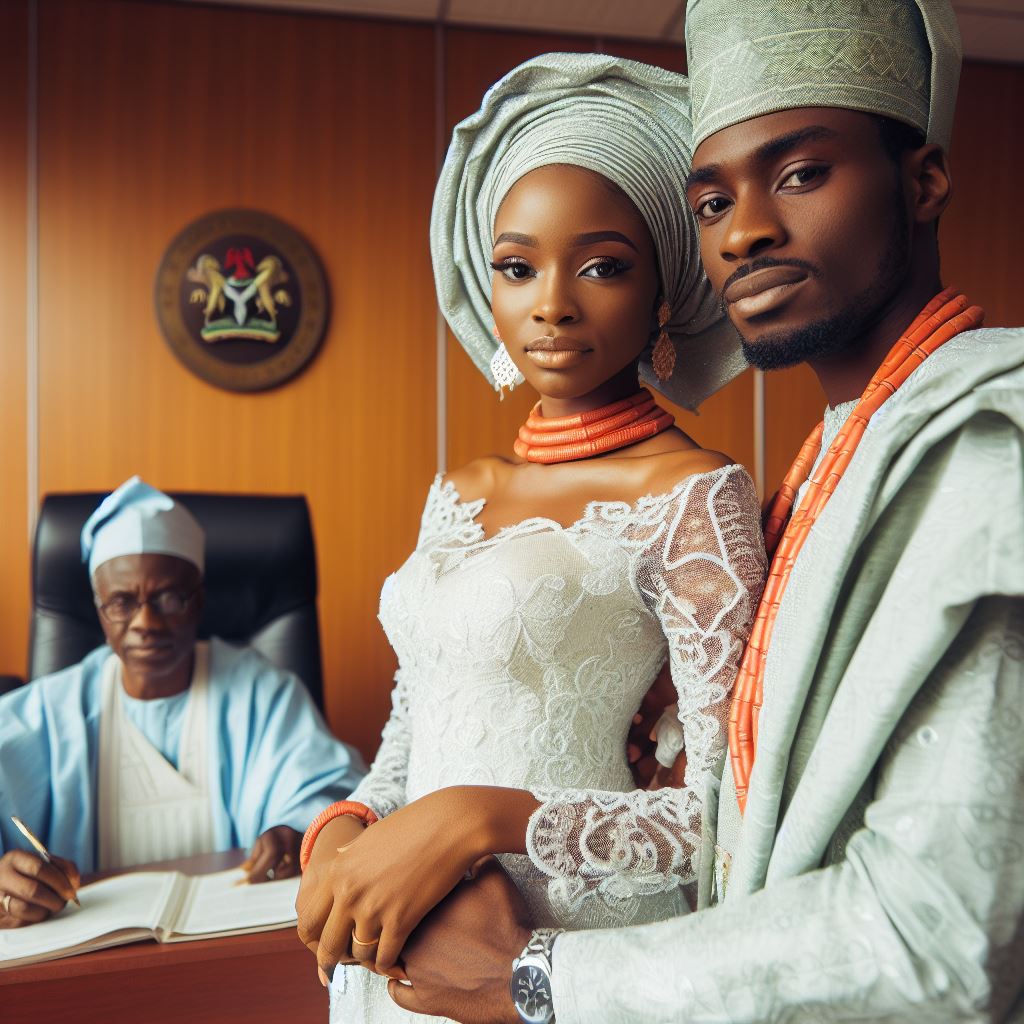
Delve into the Subject: Modern Nigerian Wedding Wishes for the Millennial Couple
Initiatives and Efforts to Address Legal Age and Consent in Nigeria
A. Legislative Measures to Raise Awareness and Enforce Marriage Laws
- Strengthening existing laws to clearly define the legal age for marriage and consent.
- Implementing rigorous enforcement mechanisms to penalize those who violate these laws.
- Collaborating with law enforcement agencies to ensure active monitoring and reporting of child marriages.
- Conducting awareness campaigns to educate the public about the legal consequences and harmful effects of child marriages.
- Offering legal aid and support services to victims of child marriages to seek justice.
B. Role of NGOs and Civil Society Organizations in Combating Child Marriages
- Advocating for policy reforms that protect the rights of children and criminalize child marriages.
- Providing shelters and rehabilitation programs for survivors of child marriages.
- Facilitating community dialogues to challenge harmful cultural norms and practices that perpetuate child marriages.
- Offering counseling and educational opportunities to empower girls and boys to make informed decisions regarding marriage.
- Collaborating with government agencies to develop comprehensive strategies to prevent and address child marriages.
C. Education and Empowerment Programs Targeting Vulnerable Communities
- Implementing comprehensive sex education in schools to equip children with knowledge about their rights and choices.
- Creating safe spaces and support groups for young girls to discuss issues related to marriage, consent, and their futures.
- Providing vocational training and skill-building programs to enhance economic opportunities for vulnerable communities.
- Engaging religious and traditional leaders to promote gender equality and discourage child marriages.
- Conducting outreach programs to sensitively engage parents and community members on the importance of delaying marriages for children.
In short, Nigeria has taken several initiatives to address the issue of legal age and consent in marriage.
Legislative measures, NGOs, and civil society organizations, as well as education and empowerment programs, play crucial roles in combating child marriages.
By raising awareness, enforcing laws, and empowering vulnerable communities, Nigeria aims to create a society where every child can thrive and fulfill their potential.
Explore Further: Harmony at Home: Daily Prayers for Peaceful Nigerian Families
Uncover the Details: Inter-State Marriages: Certificates and Legalities
Recommendations for Navigating Nigeria’s Marriage Laws
A. Understanding and Obeying Legal Age Requirements
- Comprehend the minimum legal age for marriage in Nigeria, which is 18 years.
- Confirm local variations in marriage age, as some states may have different regulations.
- Prioritize verifying your partner’s age to avoid potential legal complications.
- Know that underage marriage can result in penalties, so adhere to the law.
- Always check for any recent changes in marriage age laws to stay compliant.
B. Obtaining Proper Consent and Ensuring Equality in Marriages
- Ensure both parties willingly consent to the marriage.
- Guard against forced marriages, which are illegal and harmful.
- Embrace gender equality, and resist practices that discriminate against women.
- Seek counseling or support if you face coercion or discrimination in your marriage.
- Stay informed about organizations and services that can help in cases of unequal marriages.
C. Advocacy for Policy Reforms and Increased Awareness
- Join or support organizations that advocate for marriage law reforms.
- Engage in awareness campaigns to inform the public about legal rights and obligations in marriage.
- Encourage open dialogue within communities about the importance of consent and equality.
- Advocate for stricter enforcement of laws against child marriages.
- Stay informed about proposed changes in marriage laws and actively participate in relevant discussions or petitions.
In a nutshell, a clear understanding of legal age requirements, obtaining proper consent, and advocating for policy reforms are crucial steps in navigating Nigeria’s marriage laws.
By following these recommendations, you can contribute to a society that upholds the principles of equality, consent, and legality in marriages.
Conclusion
As we come to the end of this blog post, let’s recap the key points that have been discussed.
We have explored the legal age and consent requirements for marriages in Nigeria.
It is clear that Nigerian law sets a minimum age for marriage, which is 18 years old.
However, it is important to note that some states allow for marriages under the age of 18 with parental or court consent.
Throughout this blog post, we have emphasized the significance of legal age and consent in Nigerian marriages.
By setting a minimum age requirement, the law aims to protect adolescents from the potential physical, emotional, and mental harm that early marriages can bring.
Consent, on the other hand, ensures that individuals are aware of the responsibilities and implications of marriage.
In closing, it is crucial for both individuals and society as a whole to prioritize and protect the rights of Nigerian adolescents.
This includes advocating for policies that enforce the legal age and consent requirements for marriages and providing education and support to young individuals.
To take action, we encourage everyone to raise awareness about the importance of legal age and consent in Nigerian marriages.
By educating ourselves and others, we can work towards creating a society that values the well-being and rights of all adolescents.
Together, we can make a difference and create a better future for Nigeria.

